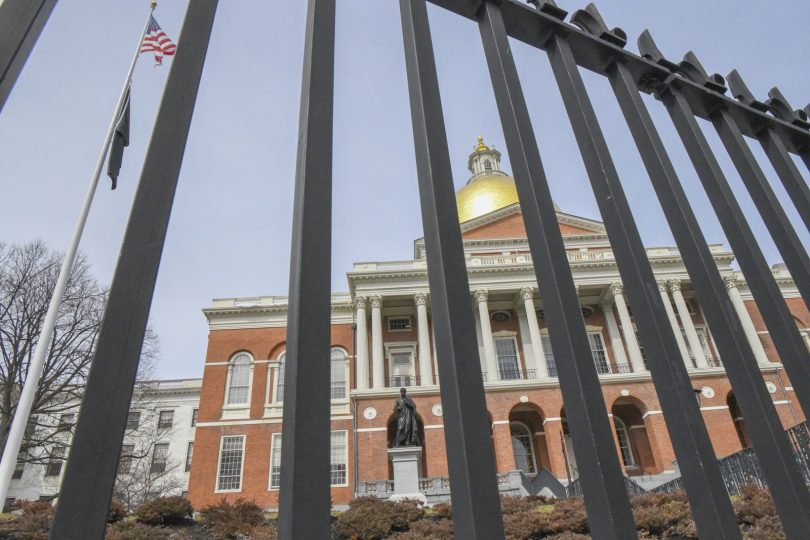By Alice Ferre
Boston University Statehouse Program
This article was originally published in South Coast Today.
BOSTON — When the Department of Justice announced $8.4 million worth of grants for 12 Massachusetts programs combatting the opioid crisis early October, Bristol County and the city of New Bedford were not on the list, even as opioid-related deaths have plagued those areas.
But New Bedford was ahead of the curve and had already accessed other funds to run the opioid programs addressed by the grants, according to local officials.
Jon Carvalho, a spokesman for Mayor Jon Mitchell’s office, said in a statement that New Bedford had no need for those federal grants.
“The city didn’t apply for this particular grant as it would fund setting up a diversion program, which New Bedford created earlier this year, leading Massachusetts as the first city in the state to establish a law enforcement assisted diversion program,” said Carvalho in an email.
Announced last May by city and county officials, the Law Enforcement Assisted Diversion program, or LEAD, aims at directing low-level drug offenders to treatment centers rather than jail, where their behavioral health needs will be met.
In Bristol County, the number of opioid overdose deaths rose from 166 people in 2015 to 244 in 2017. In New Bedford, those numbers went from 28 in 2014, spiking to over 50 the following two years before dropping to 45 in 2017.
According to Rep. Antonio F. D. Cabral, D-New Bedford’s opioid assistance comes “through a number of federal and state programs.”
“At the state level, we – specifically members of the Gateway Cities Legislative Caucus – are constantly seeking out additional funding sources to help our communities combat this public health crisis,” Cabral’s office said in a statement in his name. “For example, in this year’s fiscal year 2019 Massachusetts budget, I secured $150,000 in state funding for the Greater New Bedford Community Health Center’s opioid abuse treatment program.”
The caucus, led by Cabral and Sen. Eric Lesser, D-Longmeadow, advocates for development and social initiatives in the state’s Gateway Cities – midsize urban centers with economic and educational levels below state average. New Bedford, Fall River and Taunton are parts of Massachusetts’ 26 gateway cities.
This year, the Greater New Bedford Community Health Center received multiple grants and funds, such as $93,073 from United Way of Greater New Bedford, an organization that funds local programs and offers services on key issues for Southcoast communities.
With the support of United Way’s Innovation Fund, the GNBCHC announced in March its opioid use disorder program, which “aims to fully integrate opioid treatment into its primary care service model, proposing medication-assisted treatment which combines medication and counseling. … The center is set to prescribe and monitor buprenorphine (the generic version of suboxone),” according to the United Way website.
On the federal level, the Gavin Foundation, a non-profit that works with diverse drug courts, county houses of correction and communities around the state, received a two-year federal grant of $204,000 for state-opioid response in 2017 and a two-year federal grant of $240,000 for state-targeted response in 2018, according to a document from the Massachusetts Department of Public Health provided to The Standard-Times.
Gavin Foundation President John McGahan said that funding goes “from the federal government to the state government and gets awarded through a ‘Request for Proposal,’ process as agencies apply for consideration.
According to the document, Bristol County’s House of Correction received a $200,000 two-year federal grant in 2017 for Medication-Assisted Treatment Re-Entry Initiative, aimed for opioid-addicted inmates.
In New Bedford, the foundation utilizes grants for its Access to Recovery programs, designed “for people involved in high-risk opioid overdose and opioid addiction,” said McGahan.
“We can help people, say, with the T-Pass that would allow them to get to their therapy, that sort of thing,” McGahan said. “We can provide them with a recovery coach … We work with MassHire to help people get a two-week “job-ready,” job training program called ‘Paths to Empowerment.’”
“We take people at high risk or in early recovery and try to help them get some services to make them self-sufficient and help them in their recovery,” he said. “That’s what the ATR program does.”
Aside from Access to Recovery, the foundation uses “the MISSION model” in Bristol County’s House of Correction. Standing for “Maintaining Independence and Sobriety through Systems Integration, Outreach, and Networking,” it is a behavioral intervention for people with co-occurring disorders such as substance abuse and mental health disorders.
According to its website, the MISSION model offers vocational support, “dual recovery therapy” mixing traditional addiction treatments with traditional therapy, and “trauma-informed care considerations.”
″[Clinical teams] work with people inside the Bristol County House of Correction, prior to release and then post release, providing both clinical support and peer support in the community,” he said.
McGahan said that although funds to the foundation’s programs are always welcomed, the organization is thankful for what it has received so far.
“We’re grateful for any work, any help we receive from the federal government and the state government that will help people with opioid addiction,” he said. “Would we like to see more going to services? Yeah, absolutely, we would. But we feel that the Baker administration has done a pretty good job of getting resources to the community.”
Last May, the governor’s office declared that for a second year in a row the state would receive a $11.7 million federal grant “to continue its public health response to the opioid epidemic and bolster community overdose prevention, outpatient opioid treatment, and recovery services.”
That same month, out of the $45,000 received by Bristol County from the attorney general’s office, New Bedford was awarded a $20,000 grant for a program called “Project Alert,” monitored by the city’s public schools and police department and aiming to educate the city’s primary and middle school students about drug abuse and debunk the “pro-drug mindset of today’s teens.”





